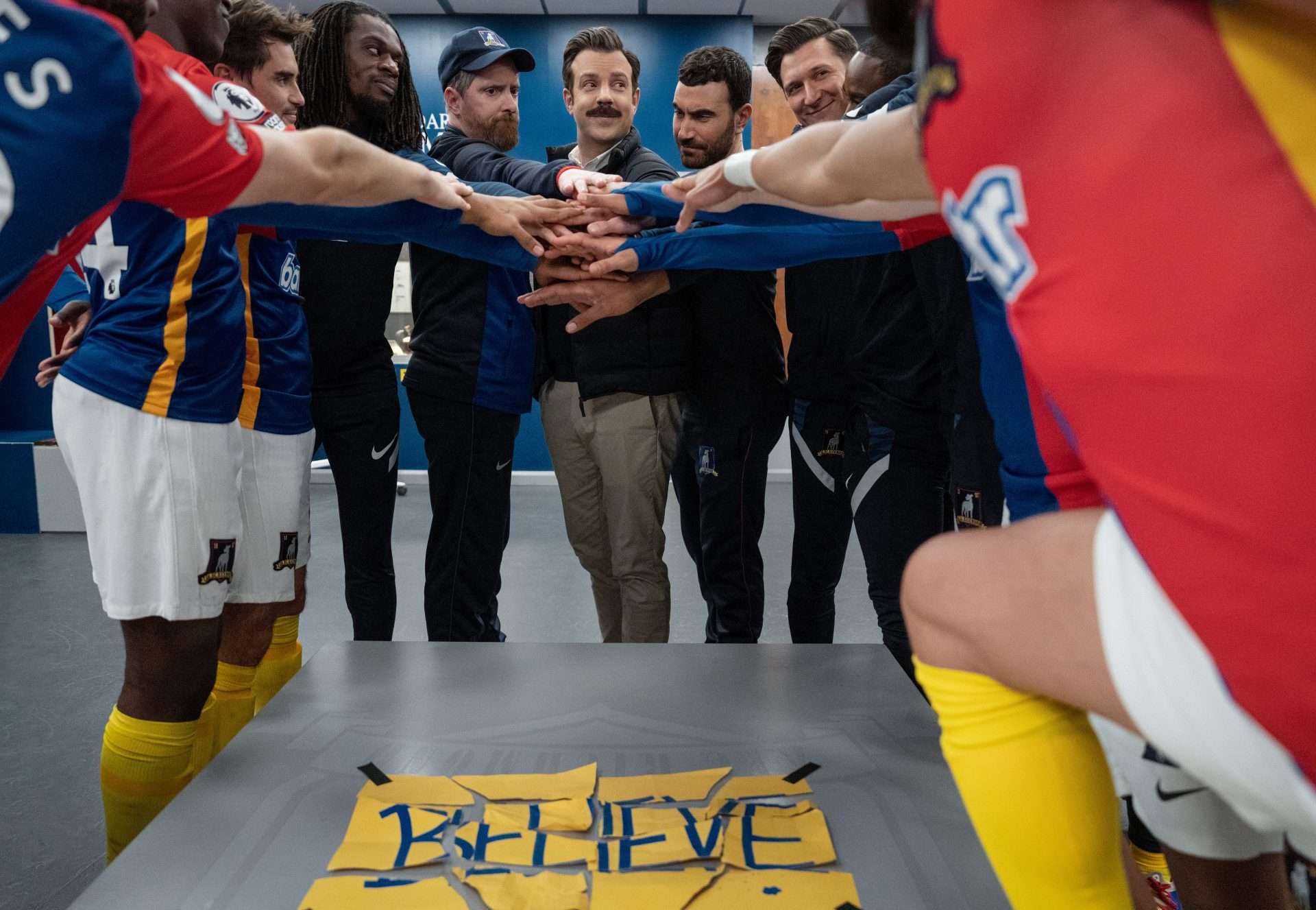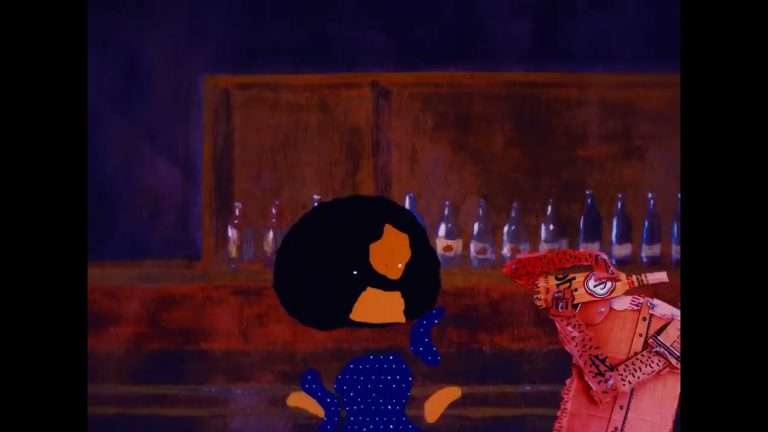The Golden Age of Television certainly has brought a diverse array of TV shows set in far-off countries or even fantasy worlds and with topics ranging from the life of a meth-dealing teacher or even an advertising executive with a fake identity. The one thing missing from this television era up until a few years ago was a genuinely positive, non-cynical TV show. When Ted Lasso premiered in 2019, it seemed like anybody looking for a respite from prestige dramas like Succession finally had their prayers answered. Following an inexperienced American football coach who is hired to manage an English soccer team, Lasso’s charms won over his team and audiences alike.
But its final season has turned the show’s message of kindness in the face of negativity into a hokey caricature of itself. Whereas the two previous seasons of the series were grounded in reality, allowing for honest and sometimes upsetting relationship arcs as well as authentic team dynamics, its last season forgoes all moral and athletic gray areas. It simply leaves in its wake a show about good guys and bad guys, winners, and losers. How could this have happened? To see where Ted Lasso went wrong, it’s essential to look at its previous season finales and how they dealt with soccer tactics and morally ambiguous character arcs.
While the latest season of Ted Lasso is the first to feature realistic footage of a Premier League game that doesn’t seem fresh out of a FIFA video game, it lacks tactical imagination or authenticity. In its first season finale, Lasso’s AFC Richmond faced the fate that all mid-tier teams fear: relegation. After a season of skepticism, the team and management were finally behind Ted, and the Cinderella savior story seemed like it could write itself. Insync for the first time in the season, AFC Richmond was playing their last game of the season against giants Manchester City, only needing a tie to save themselves.
At Lasso’s signal, they pull a charmingly goofy trick play inspired by Lasso’s American football past and score a goal, leveling the game. But the team is relegated when their former star, Jamie Tartt, scores for City. Also, their captain and strongest box-to-box midfielder, Roy Kent, suffered a career-ending injury.
It’s a bittersweet end. The team learned to work together and have fun again, but it wasn’t enough. That’s the reality of a competitive league. In sports and life, positivity only means something when confronted with a harsh reality. The night they were relegated, AFC Richmond gained a hoard of new fans who could feel closer to this club than a team like City, who won so much it gets boring fast. This season took a different approach to the Premier League after a season-long absence in the Championship League. The Cinderella Story gets multiplied by a thousand, and the team goes from battling relegation to battling for the top prize. For most Premier League teams coming back from a lower league, a dream season would end in sixth place. In fact, the last time a newly promoted team in the Premier League was able to get into the top three was in 1995.
Almost three decades and several billion dollars later, the league is much more unfriendly to small newcomers. Even the fairytale season of Leicester City, a club that won the Premier League two years after being promoted, can thank their billionaire owner and their manager, Claudio Ranieri, who had won several European trophies, for their win. Somehow, without a billionaire in sight or a tactical genius at the helm, Richmond can only force any world-class English team into submission through sheer belief in themselves. Some managers use defensive tactics, others like pressing football, and Ted likes the ‘Tinker Bell’ style. Just believe something into existence, and you never have to face the harsh results outside of Neverland.

Even the goofy tactics of season one, which made Richmond so endearing, have been thrown out in favor of unimaginative strategies any passing soccer fan could have seen coming. On a midseason trip to Amsterdam, Ted Lasso has the most significant epiphany of his career. He realizes the Dutch-born tactic “Total Football” is just what his team needs. This tactic which has evolved through the years as Tiki Taka, just so happens to be the go-to style of Pep Guardiola, the manager of Manchester City. It’s a ham-handed, dragged-out, and roundabout way to declare, “Hey, what if we played like the best team in the league?” Even though the creators try to ground the show by having the team narrowly lose out on the league trophy, the damage is done. Somehow the dumbest manager in England without the resources of the uber-rich teams has been able to scare the Goliaths of the world with a torn-up “Believe” sign and no help from the only great tactical mind on the show.
This brings us to the show’s second biggest problem: its lack of character growth and all-too-easy resolutions, especially regarding Nate Shelley. Season two’s emotion-packed finale ended with the “Wonderkid” issuing a devastating blow by leaking to the press that Ted had suffered panic attacks during a game and subsequently left to manage their rivals, West Ham United. Nate’s departure was tough not only because it hurt to see his vengeful tactics but also because we understood them. Slowly and steadily, Nate was being pushed out. Though he used to be Ted’s Golden Boy, the return of Roy Kent to the managerial squad left Nate in the dust. His plays were being ignored, as were his cries for help. Nate had been spiraling toward self-hatred, and even his angry outbursts toward the new kitman were ignored and unpunished. He’d been trying to get Ted’s attention all season by any means necessary, either through tactical genius or acting out. His pain and subsequent revenge make sense.
Season three’s end has been wiped of any nuance or meaningful confrontation. The panic attacks that dogged Ted throughout season two seem to have disappeared. Though he gets hit with homesickness occasionally, his mental health seems radically and magically better. I guess he can thank his unexplainably good circumstances for improving his health without asking for any work on his part. Even Nate comes back to him without any meaningful communication from Ted himself. Nate’s return is marked by a teary apology on his part and not much else. It seems as though the creators caved to the most simplistic fan’s wishes and forgot about Nate’s reasons for revenge. He simply becomes a bad guy in need of a redemption arc. The series finale left no room for good guys with bad moments or villains with good intentions. Instead, Nate’s growth is sidelined throughout the season until he is forced to grovel at the feet of a man who often forgets to appreciate him.
It’s one of many storylines that gets wrapped up in a bow without rhyme or reason. Let’s not forget Jamie Tartt’s father’s sudden sobriety or Rebecca’s improbable meet-cute and subsequent relationship with a charming Dutchman. These cliches and improbably serendipitous encounters have turned one of this era’s few award-winning feel-good shows into an embarrassing mess whose shallow positivity makes its characters hard to root for. AFC Richmond, the team that showed fans the saying “It’s the hope that kills you” without turning it into a motto, has become the team that receives so much good fortune you can no longer identify with their underdog status.


![Jonaki [2018] Review – A Bewitching Experimental Cinematic Endeavor](https://79468c92.delivery.rocketcdn.me/wp-content/uploads/2019/01/Jonaki-in-her-Wedding-Outfit-768x432.jpg)




